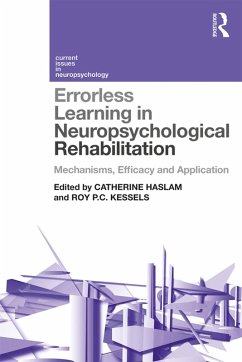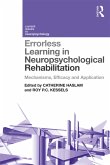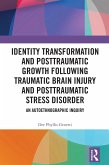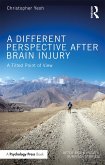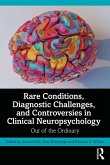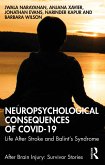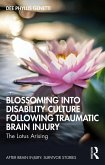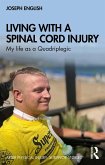Errorless Learning in Neuropsychological Rehabilitation (eBook, ePUB)
Mechanisms, Efficacy and Application
Redaktion: Haslam, Catherine; Kessels, Roy
46,95 €
46,95 €
inkl. MwSt.
Sofort per Download lieferbar

23 °P sammeln
46,95 €
Als Download kaufen

46,95 €
inkl. MwSt.
Sofort per Download lieferbar

23 °P sammeln
Jetzt verschenken
Alle Infos zum eBook verschenken
46,95 €
inkl. MwSt.
Sofort per Download lieferbar
Alle Infos zum eBook verschenken

23 °P sammeln
Errorless Learning in Neuropsychological Rehabilitation (eBook, ePUB)
Mechanisms, Efficacy and Application
Redaktion: Haslam, Catherine; Kessels, Roy
- Format: ePub
- Merkliste
- Auf die Merkliste
- Bewerten Bewerten
- Teilen
- Produkt teilen
- Produkterinnerung
- Produkterinnerung

Bitte loggen Sie sich zunächst in Ihr Kundenkonto ein oder registrieren Sie sich bei
bücher.de, um das eBook-Abo tolino select nutzen zu können.
Hier können Sie sich einloggen
Hier können Sie sich einloggen
Sie sind bereits eingeloggt. Klicken Sie auf 2. tolino select Abo, um fortzufahren.

Bitte loggen Sie sich zunächst in Ihr Kundenkonto ein oder registrieren Sie sich bei bücher.de, um das eBook-Abo tolino select nutzen zu können.
This definitive volume provides an up-to-date comprehensive and concise analysis of the use of Errorless Learning (EL) principles in neuro-rehabilitation.
- Geräte: eReader
- mit Kopierschutz
- eBook Hilfe
- Größe: 2.71MB
Andere Kunden interessierten sich auch für
![Errorless Learning in Neuropsychological Rehabilitation (eBook, PDF) Errorless Learning in Neuropsychological Rehabilitation (eBook, PDF)]() Errorless Learning in Neuropsychological Rehabilitation (eBook, PDF)46,95 €
Errorless Learning in Neuropsychological Rehabilitation (eBook, PDF)46,95 €![Identity Transformation and Posttraumatic Growth Following Traumatic Brain Injury and Posttraumatic Stress Disorder (eBook, ePUB) Identity Transformation and Posttraumatic Growth Following Traumatic Brain Injury and Posttraumatic Stress Disorder (eBook, ePUB)]() Dee Phyllis GenettiIdentity Transformation and Posttraumatic Growth Following Traumatic Brain Injury and Posttraumatic Stress Disorder (eBook, ePUB)51,95 €
Dee Phyllis GenettiIdentity Transformation and Posttraumatic Growth Following Traumatic Brain Injury and Posttraumatic Stress Disorder (eBook, ePUB)51,95 €![A Different Perspective After Brain Injury (eBook, ePUB) A Different Perspective After Brain Injury (eBook, ePUB)]() Christopher YeohA Different Perspective After Brain Injury (eBook, ePUB)27,95 €
Christopher YeohA Different Perspective After Brain Injury (eBook, ePUB)27,95 €![Rare Conditions, Diagnostic Challenges, and Controversies in Clinical Neuropsychology (eBook, ePUB) Rare Conditions, Diagnostic Challenges, and Controversies in Clinical Neuropsychology (eBook, ePUB)]() Rare Conditions, Diagnostic Challenges, and Controversies in Clinical Neuropsychology (eBook, ePUB)44,95 €
Rare Conditions, Diagnostic Challenges, and Controversies in Clinical Neuropsychology (eBook, ePUB)44,95 €![Neuropsychological Consequences of COVID-19 (eBook, ePUB) Neuropsychological Consequences of COVID-19 (eBook, ePUB)]() Jwala NarayananNeuropsychological Consequences of COVID-19 (eBook, ePUB)23,95 €
Jwala NarayananNeuropsychological Consequences of COVID-19 (eBook, ePUB)23,95 €![Blossoming Into Disability Culture Following Traumatic Brain Injury (eBook, ePUB) Blossoming Into Disability Culture Following Traumatic Brain Injury (eBook, ePUB)]() Dee Phyllis GenettiBlossoming Into Disability Culture Following Traumatic Brain Injury (eBook, ePUB)22,95 €
Dee Phyllis GenettiBlossoming Into Disability Culture Following Traumatic Brain Injury (eBook, ePUB)22,95 €![Living with a Spinal Cord Injury (eBook, ePUB) Living with a Spinal Cord Injury (eBook, ePUB)]() Joseph EnglishLiving with a Spinal Cord Injury (eBook, ePUB)26,95 €
Joseph EnglishLiving with a Spinal Cord Injury (eBook, ePUB)26,95 €-
-
-
This definitive volume provides an up-to-date comprehensive and concise analysis of the use of Errorless Learning (EL) principles in neuro-rehabilitation.
Dieser Download kann aus rechtlichen Gründen nur mit Rechnungsadresse in A, B, BG, CY, CZ, D, DK, EW, E, FIN, F, GR, HR, H, IRL, I, LT, L, LR, M, NL, PL, P, R, S, SLO, SK ausgeliefert werden.
Produktdetails
- Produktdetails
- Verlag: Taylor & Francis eBooks
- Seitenzahl: 222
- Erscheinungstermin: 2. Januar 2018
- Englisch
- ISBN-13: 9781317337966
- Artikelnr.: 50745781
- Verlag: Taylor & Francis eBooks
- Seitenzahl: 222
- Erscheinungstermin: 2. Januar 2018
- Englisch
- ISBN-13: 9781317337966
- Artikelnr.: 50745781
- Herstellerkennzeichnung Die Herstellerinformationen sind derzeit nicht verfügbar.
Catherine Haslam is Professor of Clinical Psychology at the University of Queensland, Australia. Roy P.C. Kessels is head of the Department of Neuropsychology and Rehabilitation Psychology and clinical neuropsychologist at the department of Medical Psychology, Radboud University, The Netherlands.
PART 1
Errorless learning: introductory, historical and theoretical overview, 1. "Make no mistake": errorless learning and its application in rehabilitation
Catherine Haslam and Roy Kessels, 2. The past, present and future of errorless learning in rehabilitation
Barbara A. Wilson and Jessica E. Fish, 3. Cognitive and neural correlates of errorless learning
Dirk Bertens and Inti A. Brazil, PART 2
Applying errorless learning in neurorehabilitation, 4. Application of errorless learning in child rehabilitation
Catherine Haslam, 5. Application of errorless learning in adult acquired brain injury rehabilitation
Jonathan Evans, 6. Application of errorless learning in dementia
Roy Kessels, 7. Application of errorless learning in the treatment of acquired communication disorders
Paul Conroy, 8. Application of errorless learning in schizophrenia
Nicolas Cabé and Julien Cabé, 9. Application of errorless learning in alcohol
related cognitive disorders
Yvonne C.M. Rensen, Hélène Beaunieux, Francis Eustache, and Anne
Lise Pitel, PART 3
Error
based approaches and comparative techniques, 10. Learning from our mistakes: effects of learning errors on memory in healthy younger and older adults
Andrée
Ann Cyr and Nicole D. Anderson, 11. Errors: friend or foe? The theory and evidence base for error
based learning
Tamara Ownsworth, 12. The tyranny of choice: can we choose between errorless learning, spaced retrieval and vanishing cues
Catherine Haslam, PART 4
Conclusion, 13. Working with error in rehabilitation practice: making the most of errorless and error
based approaches
Catherine Haslam and Roy Kessels
Errorless learning: introductory, historical and theoretical overview, 1. "Make no mistake": errorless learning and its application in rehabilitation
Catherine Haslam and Roy Kessels, 2. The past, present and future of errorless learning in rehabilitation
Barbara A. Wilson and Jessica E. Fish, 3. Cognitive and neural correlates of errorless learning
Dirk Bertens and Inti A. Brazil, PART 2
Applying errorless learning in neurorehabilitation, 4. Application of errorless learning in child rehabilitation
Catherine Haslam, 5. Application of errorless learning in adult acquired brain injury rehabilitation
Jonathan Evans, 6. Application of errorless learning in dementia
Roy Kessels, 7. Application of errorless learning in the treatment of acquired communication disorders
Paul Conroy, 8. Application of errorless learning in schizophrenia
Nicolas Cabé and Julien Cabé, 9. Application of errorless learning in alcohol
related cognitive disorders
Yvonne C.M. Rensen, Hélène Beaunieux, Francis Eustache, and Anne
Lise Pitel, PART 3
Error
based approaches and comparative techniques, 10. Learning from our mistakes: effects of learning errors on memory in healthy younger and older adults
Andrée
Ann Cyr and Nicole D. Anderson, 11. Errors: friend or foe? The theory and evidence base for error
based learning
Tamara Ownsworth, 12. The tyranny of choice: can we choose between errorless learning, spaced retrieval and vanishing cues
Catherine Haslam, PART 4
Conclusion, 13. Working with error in rehabilitation practice: making the most of errorless and error
based approaches
Catherine Haslam and Roy Kessels
PART 1
Errorless learning: introductory, historical and theoretical overview, 1. "Make no mistake": errorless learning and its application in rehabilitation
Catherine Haslam and Roy Kessels, 2. The past, present and future of errorless learning in rehabilitation
Barbara A. Wilson and Jessica E. Fish, 3. Cognitive and neural correlates of errorless learning
Dirk Bertens and Inti A. Brazil, PART 2
Applying errorless learning in neurorehabilitation, 4. Application of errorless learning in child rehabilitation
Catherine Haslam, 5. Application of errorless learning in adult acquired brain injury rehabilitation
Jonathan Evans, 6. Application of errorless learning in dementia
Roy Kessels, 7. Application of errorless learning in the treatment of acquired communication disorders
Paul Conroy, 8. Application of errorless learning in schizophrenia
Nicolas Cabé and Julien Cabé, 9. Application of errorless learning in alcohol
related cognitive disorders
Yvonne C.M. Rensen, Hélène Beaunieux, Francis Eustache, and Anne
Lise Pitel, PART 3
Error
based approaches and comparative techniques, 10. Learning from our mistakes: effects of learning errors on memory in healthy younger and older adults
Andrée
Ann Cyr and Nicole D. Anderson, 11. Errors: friend or foe? The theory and evidence base for error
based learning
Tamara Ownsworth, 12. The tyranny of choice: can we choose between errorless learning, spaced retrieval and vanishing cues
Catherine Haslam, PART 4
Conclusion, 13. Working with error in rehabilitation practice: making the most of errorless and error
based approaches
Catherine Haslam and Roy Kessels
Errorless learning: introductory, historical and theoretical overview, 1. "Make no mistake": errorless learning and its application in rehabilitation
Catherine Haslam and Roy Kessels, 2. The past, present and future of errorless learning in rehabilitation
Barbara A. Wilson and Jessica E. Fish, 3. Cognitive and neural correlates of errorless learning
Dirk Bertens and Inti A. Brazil, PART 2
Applying errorless learning in neurorehabilitation, 4. Application of errorless learning in child rehabilitation
Catherine Haslam, 5. Application of errorless learning in adult acquired brain injury rehabilitation
Jonathan Evans, 6. Application of errorless learning in dementia
Roy Kessels, 7. Application of errorless learning in the treatment of acquired communication disorders
Paul Conroy, 8. Application of errorless learning in schizophrenia
Nicolas Cabé and Julien Cabé, 9. Application of errorless learning in alcohol
related cognitive disorders
Yvonne C.M. Rensen, Hélène Beaunieux, Francis Eustache, and Anne
Lise Pitel, PART 3
Error
based approaches and comparative techniques, 10. Learning from our mistakes: effects of learning errors on memory in healthy younger and older adults
Andrée
Ann Cyr and Nicole D. Anderson, 11. Errors: friend or foe? The theory and evidence base for error
based learning
Tamara Ownsworth, 12. The tyranny of choice: can we choose between errorless learning, spaced retrieval and vanishing cues
Catherine Haslam, PART 4
Conclusion, 13. Working with error in rehabilitation practice: making the most of errorless and error
based approaches
Catherine Haslam and Roy Kessels
